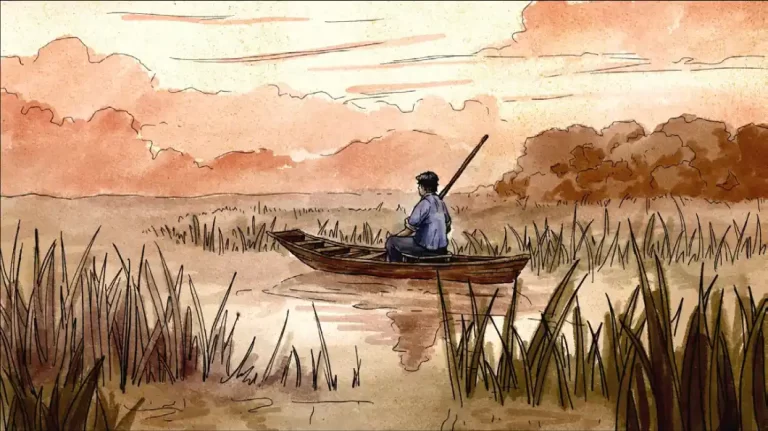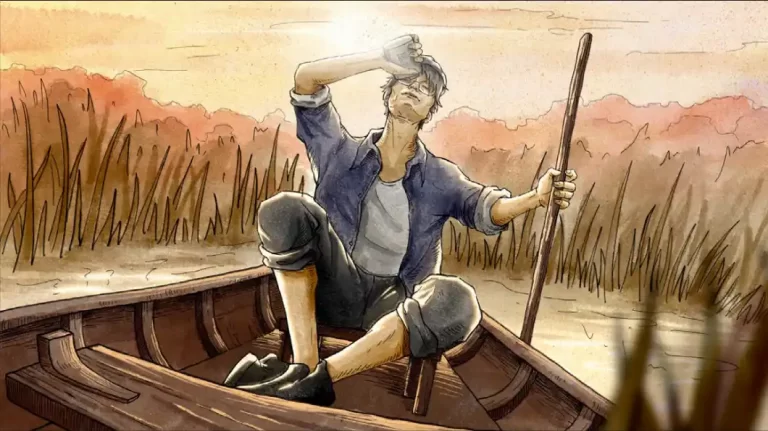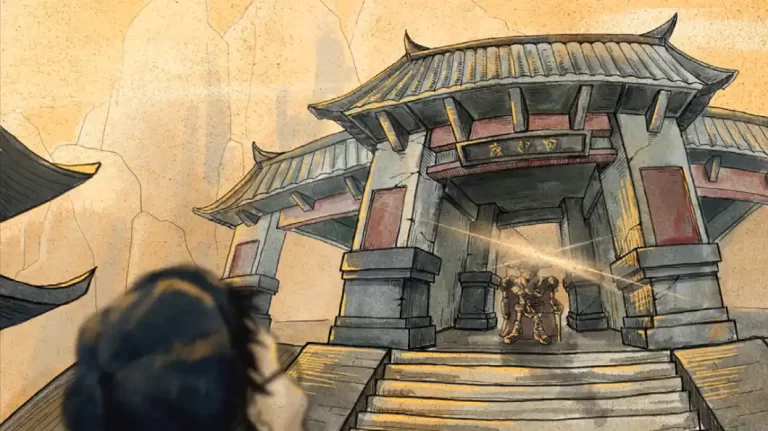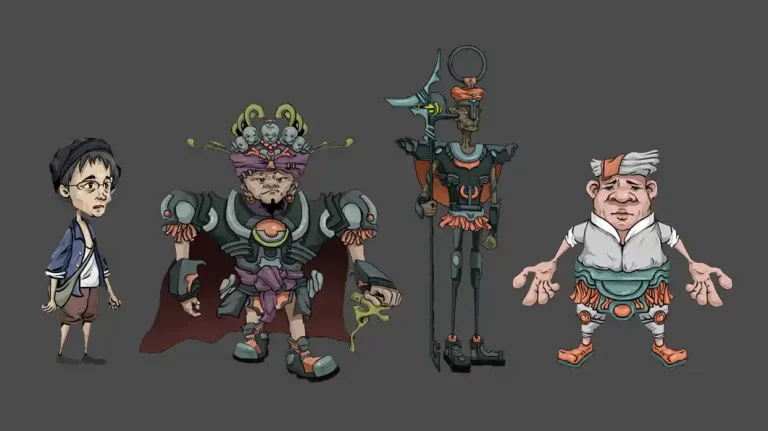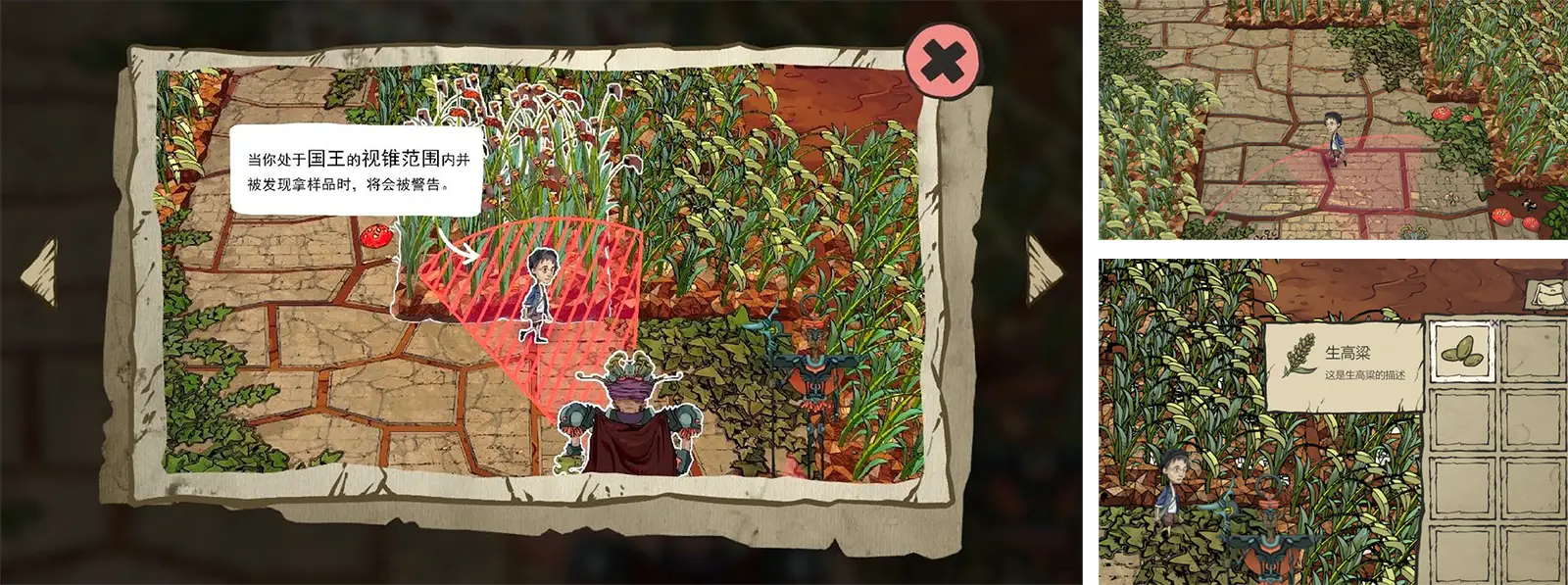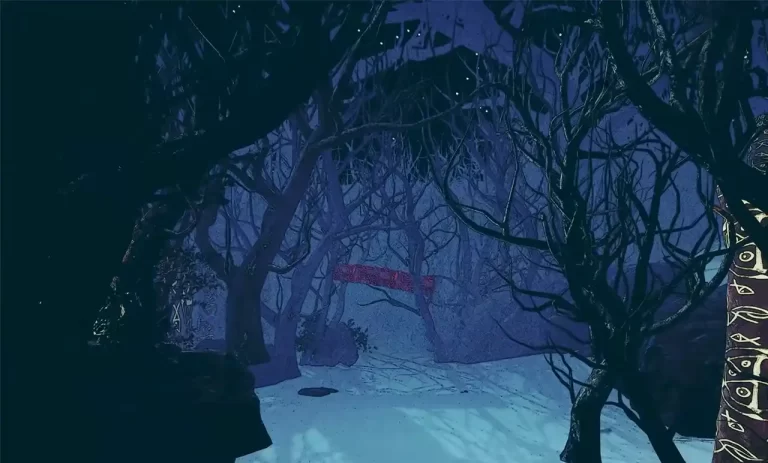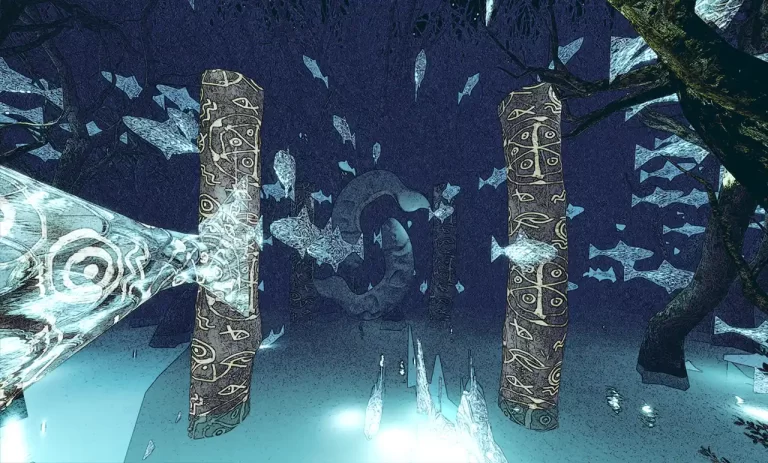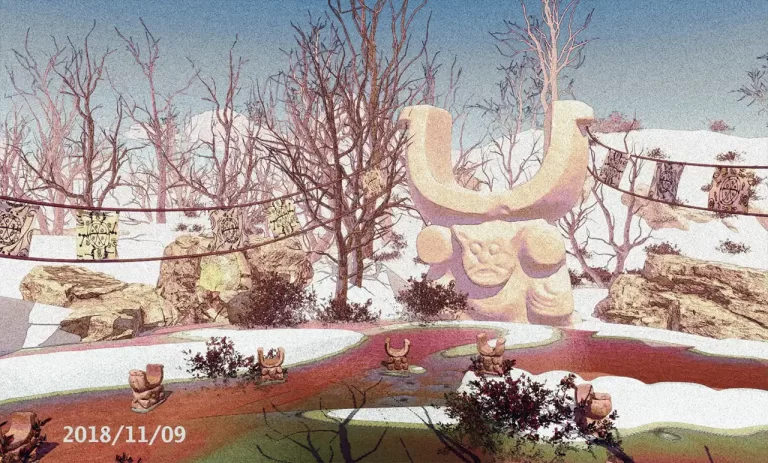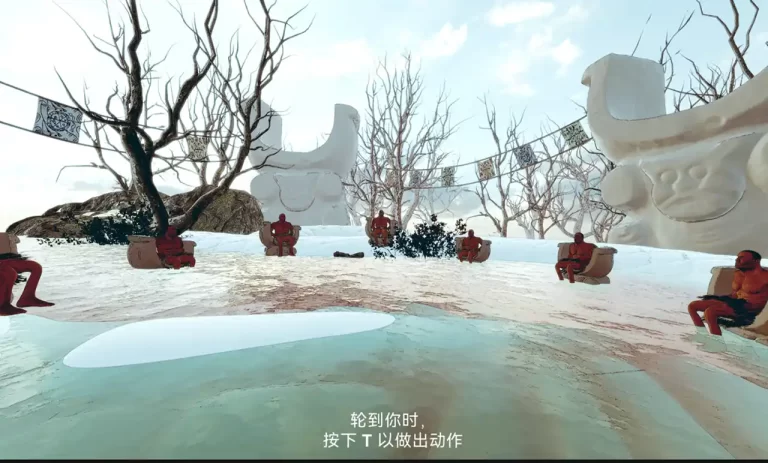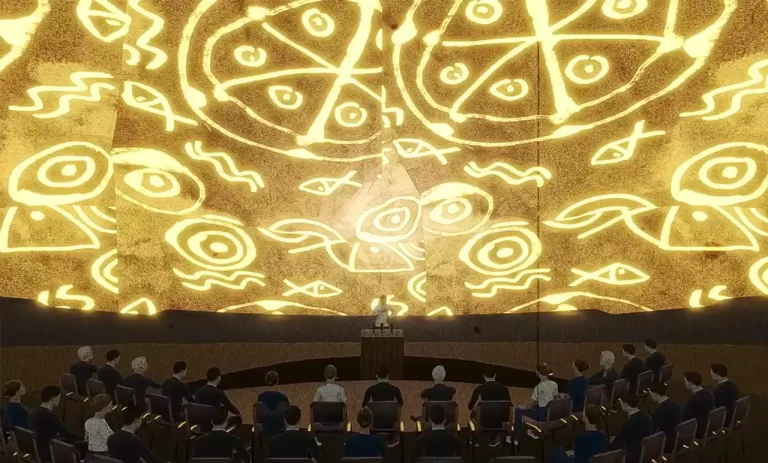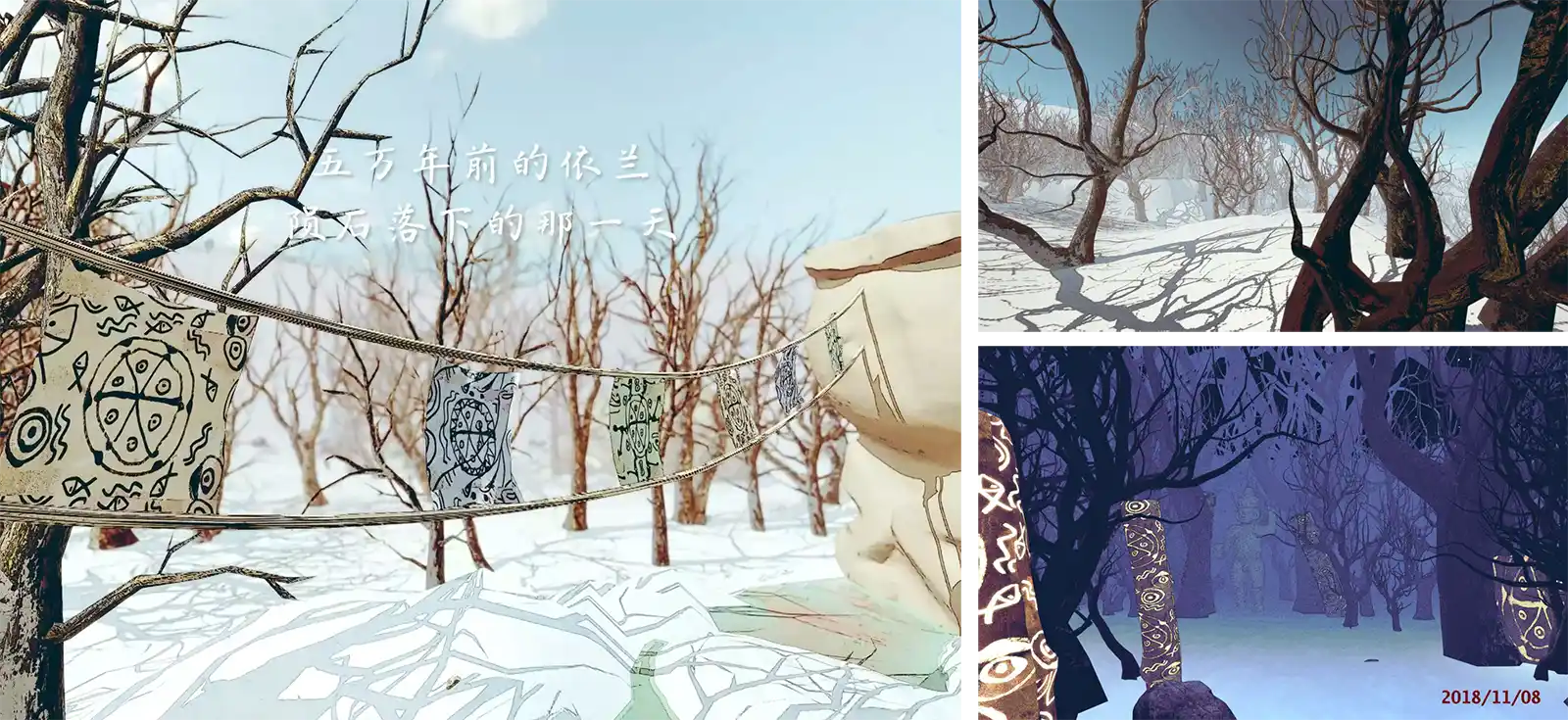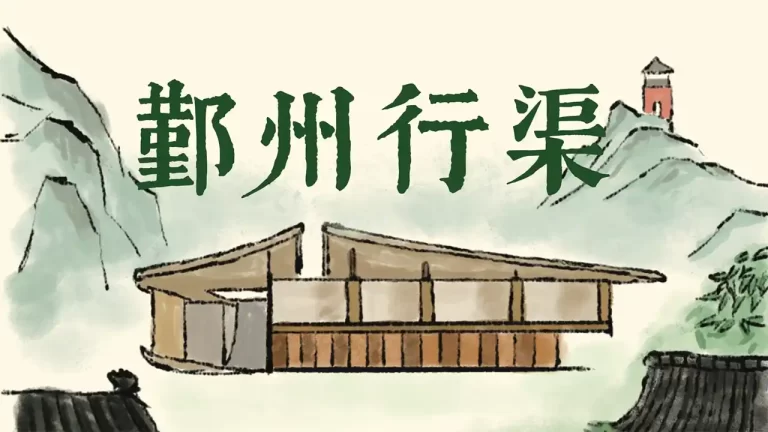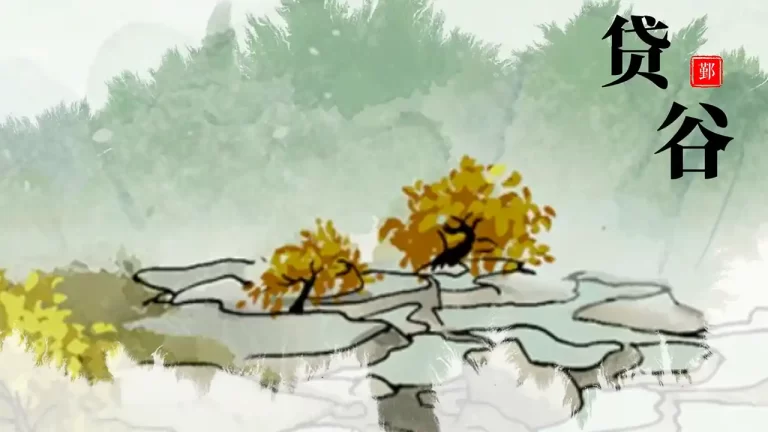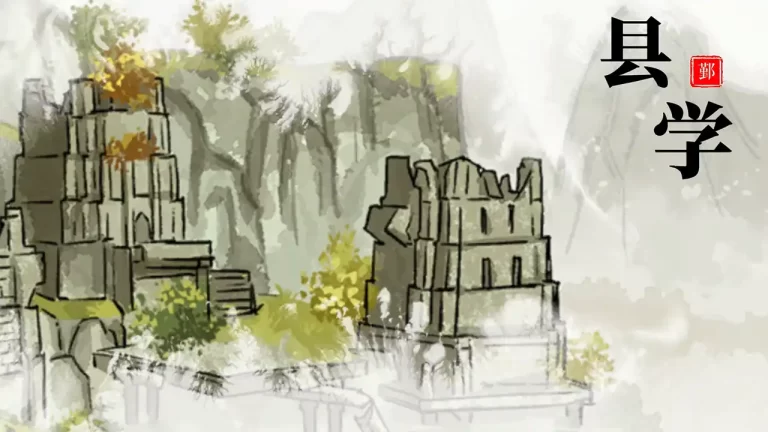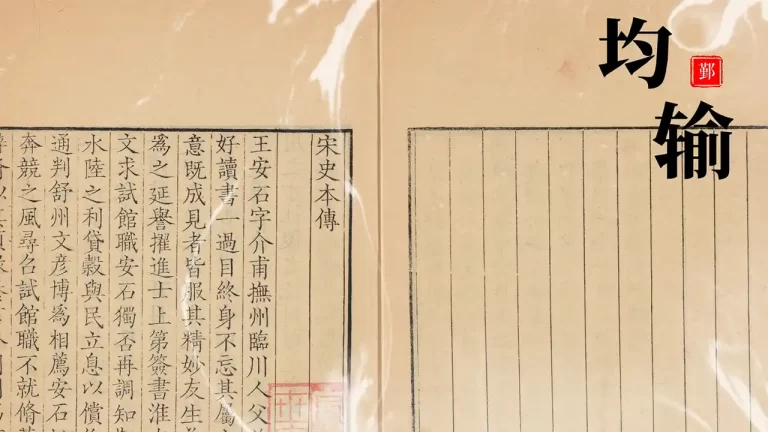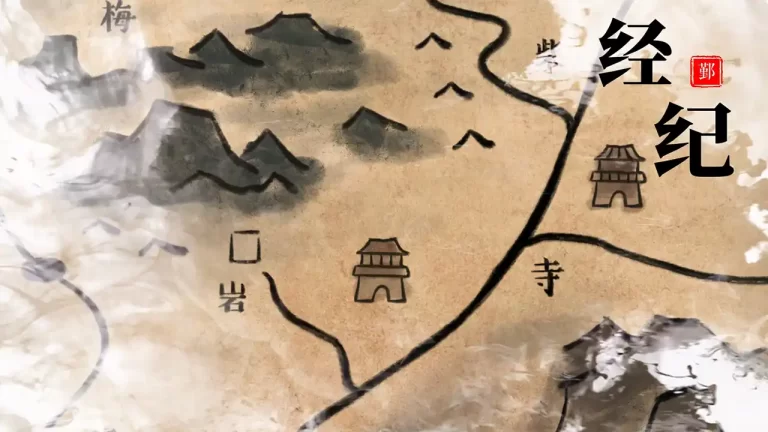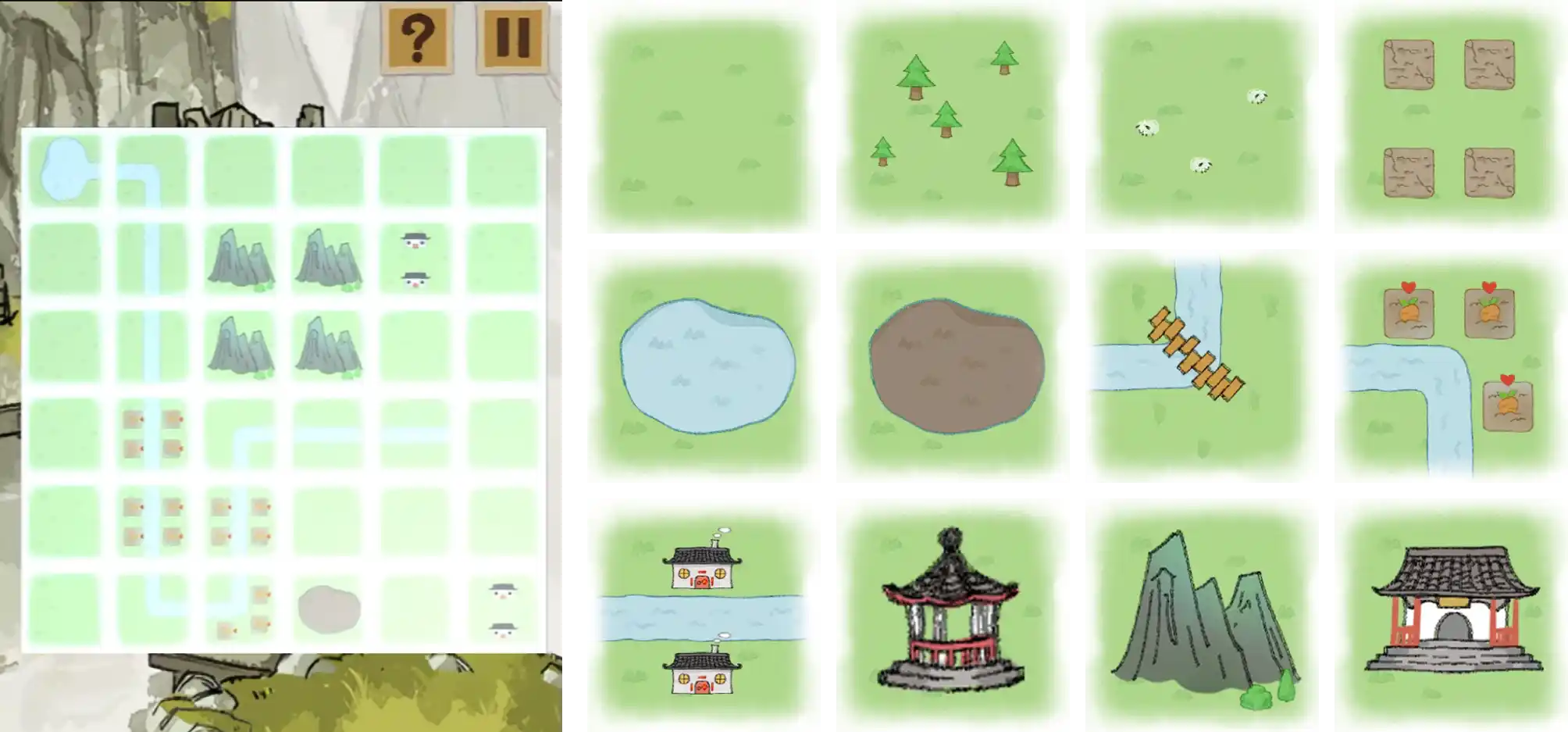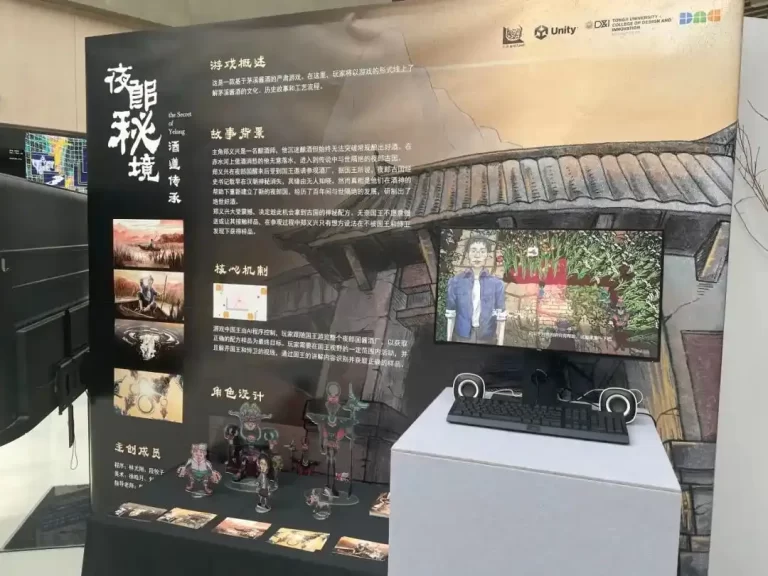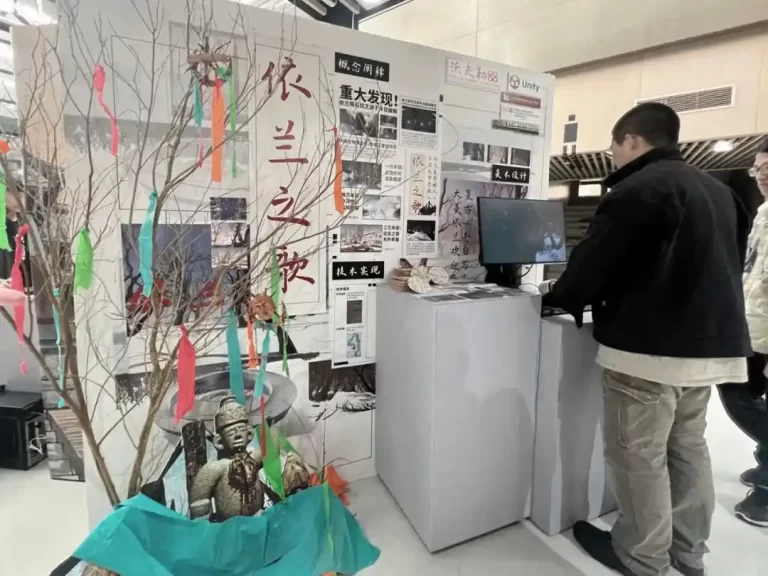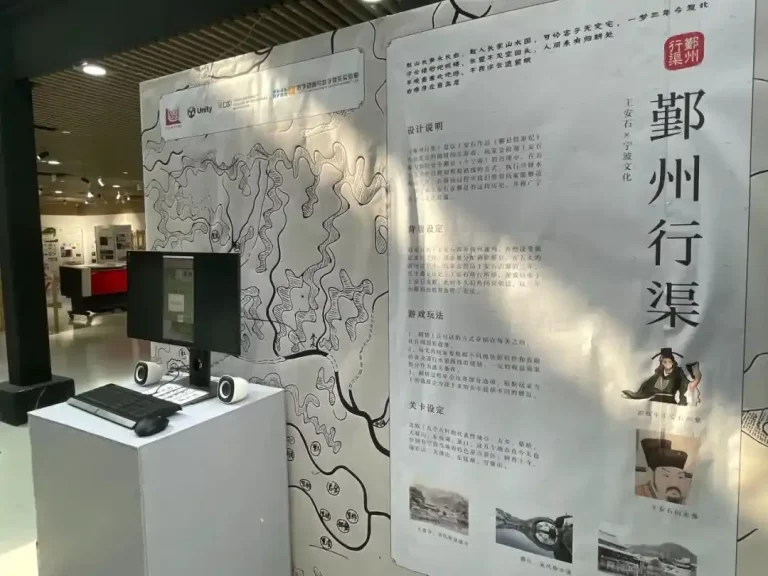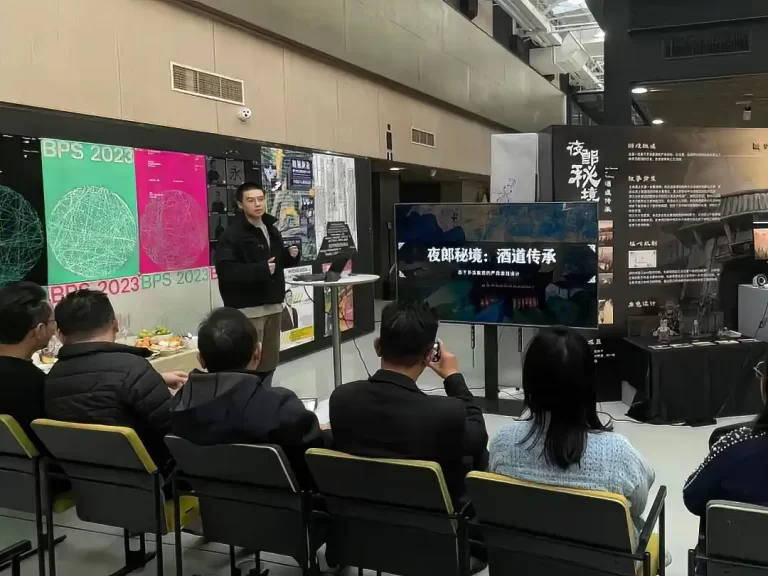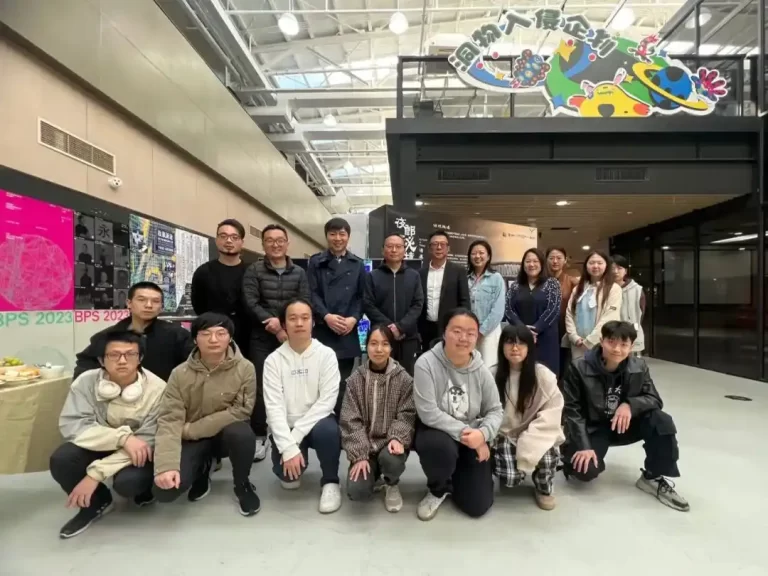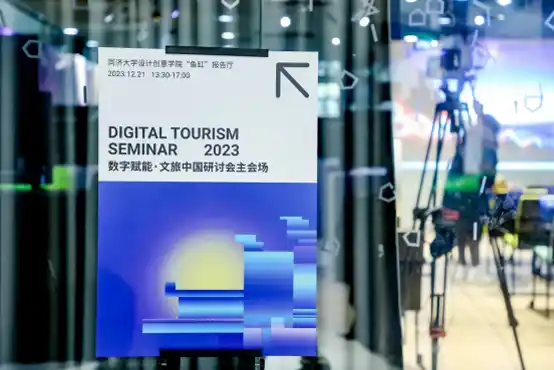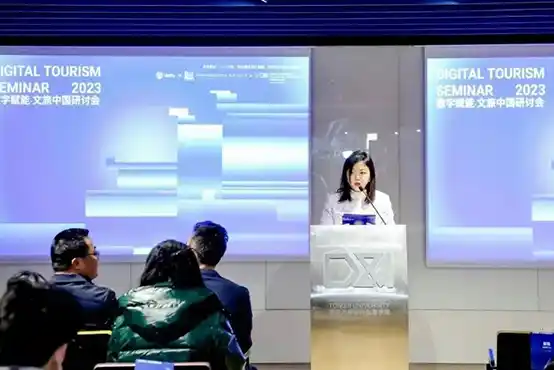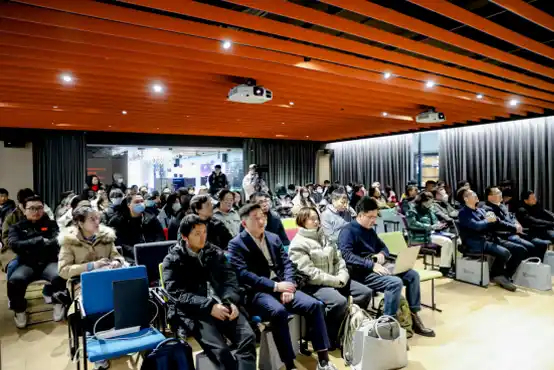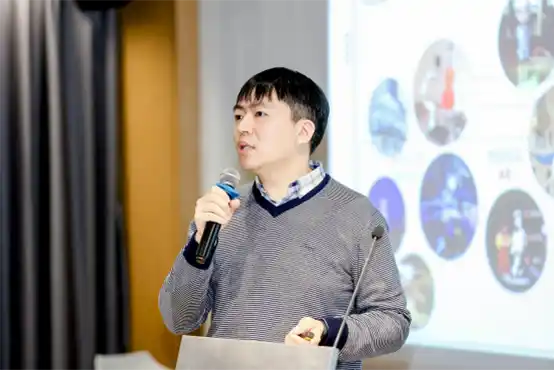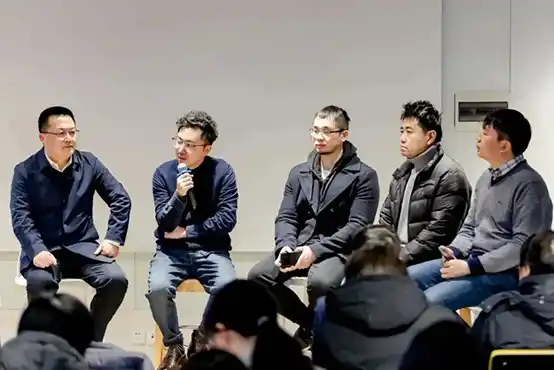
Couse Name
Design Studio 5
Partners
Unity China, Tongji Architectural Design (Group) Co., Ltd.
Course Leader
Aaron Leo, College of Design and Innovation, Tongji University

Couse Name
Design Studio 5
Partners
Unity China, Tongji Architectural Design (Group) Co., Ltd.
Course Leader
Aaron Leo, College of Design and Innovation, Tongji University

Couse Name
Design Studio 5
Partners
Unity China, Tongji Architectural Design (Group) Co., Ltd.
Course Leader
Aaron Leo, College of Design and Innovation, Tongji University
Course Introduction
Studio 5 is a compulsory course for senior students of the College of Design and Innovation. In 2023, professor Aaron Leo’s Studio 5 course was held in collaboration with the Tongji Architecture Design Group (abbr. TJAD) and Unity China to explore the possibilities of digital innovation in cultural tourism projects. The goal of the course is to explore the possibilities of digital innovation in cultural tourism projects through interdisciplinary practice and innovation. In this course as long as a half semester, students worked in groups to complete the design and development of functional games around this theme.
The course chose three cultural tourism projects with urban cultural IP attributes recently designed by TJAD, and invited three young designers of the Institute, Yuhang Dai, Yaoguo Gui and Nan Wei, to participate in the creation of the course as enterprise mentors, so as to realise school-enterprise alliance and complementarity between industry, academia and research. Through the co-operation with Unity China and TJAD, we finally completed three unique and creative independent games, “The Tale of Wine”, “The Song of Yilan” and “Water Conservancy in Ancient Ningbo”.
Course Outcomes
1. The Tale of Wine
/ Creators: Youxiang Lin, Yichi Liu, Haoyue Xu, Muzi Duan, Juanyu Liu
”The Tale of Wine” is a serious game based on Maoxi Sauce Wine, allowing players to learn about the culture, historical stories, and production process of Maoxi Sauce Wine through gameplay.
The protagonist, Yixing Zheng, is a winemaker who is passionate about brewing but has always struggled to break conventions and create exceptional wine. While drowning his sorrows on the Chishui River, he accidentally falls into the water and enters the legendary, secluded “Ancient Kingdom of Yelang.”
Upon waking up in the Kingdom of Yelang, Yixing Zheng is invited by the king to tour the winery. According to the king, the ancient Kingdom of Yelang mysteriously disappeared as recorded in historical texts from the Han Dynasty, with no one knowing the reason. The truth, however, is that with the help of the God of Wine, they re-established the new Kingdom of Yelang, developed in isolation for centuries, and created an unparalleled wine.
Yixing Zheng is greatly astonished and decides to seize this opportunity to obtain the kingdom’s mysterious formula. However, the king is unwilling to give or allow access to any samples. During the tour, Yixing Zheng must find ways to acquire samples without being noticed by the king and his guards.
As a stealth and adventure puzzle game, players must evade the king’s surveillance. The king is controlled by AI, and players follow him on a tour of the Yelang Kingdom’s sauce wine distillery, with the ultimate goal of obtaining the correct formula samples. Players need to stay within a certain range of the king’s line of sight and avoid the gaze of the king and the guards. By listening to the king’s explanations, players can identify and obtain the correct samples.
Trailer
Concept Explanation
2. The Song of Yilan
/ Creators: Yidi Mao, Yiting Xu, Xinyi Liang
The game tells the story of a geologist who, guided by a keepsake left by his grandmother, overcomes various difficulties step by step, uncovers clues, and ultimately successfully holds a press conference at the dome theater of the Yilan Meteorite Crater Museum.
In the Crescent Crater, there is a small hut where a wise old shaman lives. The elderly and kind shaman passed down a mysterious keepsake to his granddaughter. This keepsake possesses magical powers, leading the girl through visions to uncover the truth. The game’s protagonist is this girl, who stands in the snow in Yilan, tightly holding the keepsake left by her grandmother. After using this keepsake, she gains a mysterious power, allowing her to glimpse the appearance of the Yilan Meteorite Crater from tens of thousands of years ago.
The game consists of three stages and a final level. In the first stage, players must complete a parkour challenge, following the illusions of fish through a misty forest to reach the key point and discover that the meteorite crater was once a large lake. In the second stage, players need to follow the fleeting animal tracks through a maze of dead trees within a time limit to find mammoth bones, confirming that this area experienced extreme cold and glaciers during the Last Glacial Period. In the third stage, players intrude upon a ritual site where prehistoric humans gather to pray to the heavens with ancient dances. Players must perform the correct actions at the right time to complete the ritual. At the moment the ritual is completed, players will witness the instant the meteorite strikes the ground and forms the crater.
After completing these three stages, players will wake up from the visions and enter the final level. Here, players, in the role of a researcher, must answer journalists’ questions and present their findings at the meteorite crater museum. The player’s previous gameplay and choices during the Q&A will ultimately influence the game’s ending.
Trailer
Concept Explanation
3. Water Conservancy in Ancient Ningbo
/ Creators: Emil & Jiayi Chen
”Yinzhou Xingqu” is a historically-themed game with a primary focus on puzzle-solving challenges.
Starting from the regional government and emerging from the ranks, the Northern Song dynasty politician Wang Anshi, at the age of 27, served as the magistrate of Yin County, Zhejiang (present-day Yinzhou District, Ningbo City) for three years. His governance was highly effective, earning him the people’s praise and laying the foundation for his future reforms. For a thousand years, the core concepts of county governance—development, serving the people, reform, and pragmatism—have been passed down and reflected in the achievements of Yinzhou.
The story is conveyed through character dialogues, broadly based on Wang Anshi’s three-year governance in Yin County as documented in history.
After each level of the game, and before unlocking the next, there is an interlude featuring a plot segment related to historical events. Through these plot segments, players will gain a deeper understanding of Wang Anshi and the past of Yin County.
In each plot segment, players, acting as Wang Anshi, will have the opportunity to make a policy-related choice. This choice will provide different types of benefits for the next level, thus connecting the storyline with the gameplay.
The main map serves as the level selection interface. As players progress through the game levels, they unlock different locations on the map of Yinzhou, which is drawn based on the actual locations of various historical sites.
In terms of specific gameplay, players must plan their canal routes based on fixed starting and ending points, as well as functional plots, fields, dams, and other elements on the site. Different routes will result in different scores, and achieving a certain score rating is considered a success.
In each level, there is a special type of plot called a scenic spot plot. This plot cannot be interacted with during route planning and acts as a constraint on player actions. Clicking directly on the scenic spot plot will bring up a pop-up window with a detailed introduction. These scenic spots are well-known both in history and in present-day Ningbo.
The game features character images including Anshi Wang, the registrar of Yin County, and the five gentlemen of the Qingli period, primarily presented in a cartoon style. The character designs reference the official attire from the Northern Song dynasty for officials of the seventh to ninth ranks, including the hard court hat. Anshi Wang is depicted with a focus on his youthful ambition and vigor, while the local scholars are portrayed as older and more composed.
Trailer
Concept Explanation
Related Events
The exhibition of this course outcomes was successfully held from 21st to 26th November 2023 in the hall on the ground floor of the college. The event invited guests such as Dean Jiang Limin, tutors Yuhang Dai, Yaoguo Gui and Nan Wei from TJAD, and Yawen Zhu from Unity China to visit the exhibition, listen to the students’ end-of-course reports and participate in grading.
Based on the foundation of course collaboration, the “Digital Empowerment: Cultural Tourism in China” academic symposium, jointly organized by the College of Design and Innovation of Tongji University, Tongji Architectural Design (Group) Co., Ltd., and Unity China, was successfully held at the College of Design and Innovation of Tongji University on December 21, 2023. With the aim of “exploring the cutting-edge trends in the cultural tourism industry in the digital era and envisioning the future development of the cultural tourism industry in the digital age,” the event invited representatives from industry and academia to share insights on the digital cultural tourism industry, covering aspects such as background, technology, products, and practical application scenarios. Additionally, focusing on the theme of “Integrative Innovation: Crafting a New Chapter for Digital Cultural Tourism,” the event featured an exciting roundtable discussion with cultural tourism managers, educators from the fields of architecture and gaming, and technology experts.
At the event, Prof. Aaron Leo and three student representatives shared the design outcomes of three game projects from Studio 5, witnessing the cross-disciplinary innovation between cultural tourism and gaming.
During the “Integrative Innovation: Crafting a New Chapter for Digital Cultural Tourism” roundtable discussion, hosted by Nan Wei, panelists including Jianguo Du, Member of the Standing Committee of the Yilan County Party Committee and Deputy County Mayor; Jianwen Chi, Director of Metaverse and Digital Twin Business Solutions at Unity China; Ming Du, Deputy Director of the Digital Center at Tongji Design Group; and Zhe Cui, Associate Professor at the College of Architecture and Urban Planning of Tongji University, along with Aaron Leo, engaged in a heated discussion. Topics included the current pain points in the development of cultural tourism, the opportunities and challenges brought by the advancement of digital technology to the cultural tourism industry, ways to provide innovative products to the cultural tourism sector through digital technology, helping the industry to break new ground and create more value, and the potential impact of the future metaverse on human production and life. They collectively expressed their belief that advancements in digital technology will undoubtedly bring more opportunities and possibilities to the cultural tourism industry, promoting richer and more valuable application scenarios, and serving economic and social development as well as people’s quality of life.
Although the course and forum have concluded, we all realize that digital technology is not the future of the cultural tourism industry but the present. It has already permeated various aspects of the cultural tourism industry, changing our ways of thinking, living, and consuming. Let us jointly explore how to leverage digital technology to inject new vitality into the cultural tourism industry and create more possibilities.

